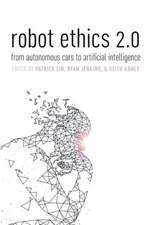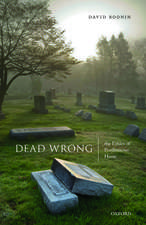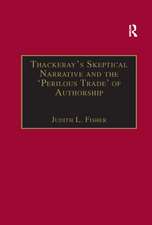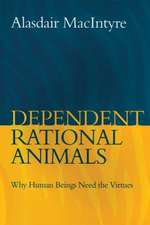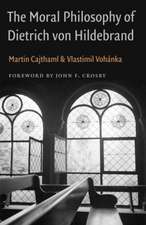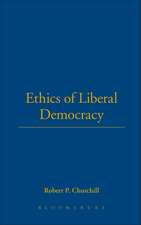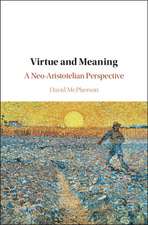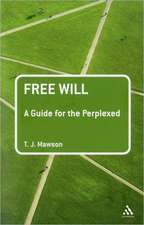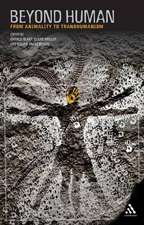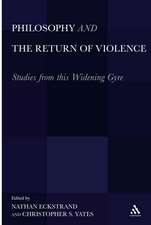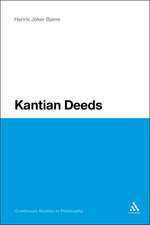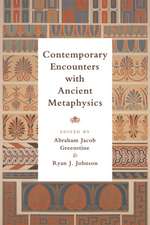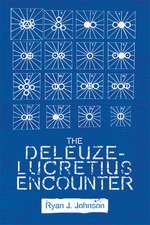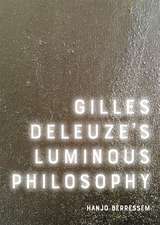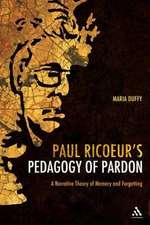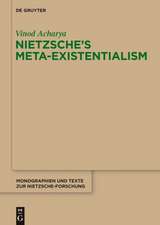Nietzsche and Epicurus
Editat de Vinod Acharya, Ryan J. Johnsonen Limba Engleză Paperback – 20 oct 2021
| Toate formatele și edițiile | Preț | Express |
|---|---|---|
| Paperback (1) | 218.09 lei 43-57 zile | |
| Bloomsbury Publishing – 20 oct 2021 | 218.09 lei 43-57 zile | |
| Hardback (1) | 598.76 lei 43-57 zile | |
| Bloomsbury Publishing – 15 apr 2020 | 598.76 lei 43-57 zile |
Preț: 218.09 lei
Preț vechi: 275.09 lei
-21% Nou
Puncte Express: 327
Preț estimativ în valută:
41.73€ • 43.69$ • 34.53£
41.73€ • 43.69$ • 34.53£
Carte tipărită la comandă
Livrare economică 07-21 aprilie
Preluare comenzi: 021 569.72.76
Specificații
ISBN-13: 9781350279162
ISBN-10: 1350279161
Pagini: 264
Dimensiuni: 156 x 234 mm
Greutate: 0.37 kg
Editura: Bloomsbury Publishing
Colecția Bloomsbury Academic
Locul publicării:London, United Kingdom
ISBN-10: 1350279161
Pagini: 264
Dimensiuni: 156 x 234 mm
Greutate: 0.37 kg
Editura: Bloomsbury Publishing
Colecția Bloomsbury Academic
Locul publicării:London, United Kingdom
Caracteristici
There is a rise of interest in ancient philosophy and how it has shaped the history of philosophy and has real contemporary relevance
Notă biografică
Ryan Johnson is assistant professor of philosophy, Elon University, USA. He is the author of The Deleuze-Lucretius Encounter (2018) and Contemporary Encounters with Ancient Metaphysics (2018).Vinod Acharya is Senior Instructor in Philosophy, Seattle University, USA. He is author of Nietzsche's Meta- Existentialism (2013).
Cuprins
prelimsIntroduction Vinod Acharya and Ryan Johnson1. Jill Marsden (Bolton Institute), "'Wisdom that walks in bodily form': Nietzsche's travels with Epicurus". 2. Willow Verkerk (Kingston), "Nietzsche's Joyful Friendship: Epicurean Elements in the Middle Works".3. Matthew Dennis (Warwick, Monash), "Epicurean Self-Cultivation in Nietzsche's Early Works". 4. Keith Ansell-Pearson (Warwick), "Nietzsche and Kant on Epicurus and Self-Cultivation". 5. Carlotta Santini (Technical University Berlin), "Literary Prose and Philosophical Style: Nietzsche on the Case of Epicurus". 6. Wilson H. Shearin (University of Miami), "Nietzsche's Epicurean Epistemology". 7. Ryan Johnson (Elon University, North Carolina), "The Gastrosophists: Eating and Thinking with Nietzsche and Epicurus". 8. Babette Babich (Fordham University), "Nietzsche's Epicurus: Music and the Art of Living".9. Patrick Wotling (Reims University, France), "Enjoying Riddles: Epicurus as a forerunner of the idea of gay science". 10. Federico Testa (Warwick, Monash), "Nietzsche and Guyau on the Temporality of Epicurean Pleasure".11. Paul Bishop (Glasgow), 'Nietzsche's Response to Epicurus in the Light of Hobbes's theory of the contract". 12. Peter S. Groff (Bucknell University), "Great Politics and the Unnoticed Life: Nietzsche and Epicurus on the Boundaries of Cultivation". 13. Daniel W. Conway (Texas A+M), "'The Psychological Type of the Redeemer': Nietzsche's Revaluation of Epicurus".bibliographyindex
Recenzii
The editors have put together an astonishingly rich volume of essays that demands the attention of all readers of Nietzsche, as well as anyone interested in the possibilities of philosophy, and philosophy as a way of life, today. Each essay in the volume contains fresh insights, as well as thoughtful proposals for novel ways of thinking and living. In staging such an instructive series of encounters between Nietzsche and Epicurus the volume provides new directions for philosophical thinking, and nothing could be more vitally pertinent to our contemporary planetary situation than this.
This wide-ranging and impressive volume brings together essays on the Nietzsche-Epicurus relationship by established and emerging scholars. By examining in detail the diverse ways in which Epicurus was an influence upon and a spur to Nietzsche's philosophy, and why Nietzsche developed criticisms of Epicurus, the collection fills a gap in the available scholarship.
This wide-ranging and impressive volume brings together essays on the Nietzsche-Epicurus relationship by established and emerging scholars. By examining in detail the diverse ways in which Epicurus was an influence upon and a spur to Nietzsche's philosophy, and why Nietzsche developed criticisms of Epicurus, the collection fills a gap in the available scholarship.

